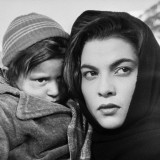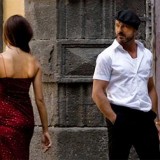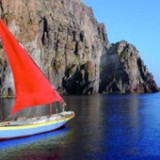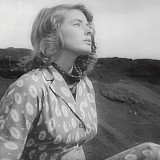Right from the opening scene where you see the village women all veiled in black waiting patiently outside the mine for their husbands who refuse to come up to avoid the mine closing – you see direct similarities with another Nerorealism harbinger – Visconti’s 1948 La terra trema (The Earth Trembles). In the latter, the black… Continue reading Il cammino della speranza – The Path of Hope (Pietro Germi – 1950)
Category: Immigration
Terraferma (Emanuele Crialese – 2011)
These days I have roughly an hour commute time between 8AM-9AM, so I find myself spending the time listening to Italian live radio broadcast (thank you TuneIn Radio app). This is one of the blessings of broadband streaming; your views and surroundings are rooted in the US, but your real-time soundtrack is coming from elsewhere… Continue reading Terraferma (Emanuele Crialese – 2011)
Open Roads 2010: Passione (John Turturro – 2010)
23 songs shot in 21 days would be the skinniest premise for an otherwise very passionate musical journey by John Turturro into the cultural alleys and pathways of a very special city – Napoli. [youtube width=”615″ height=”484″]http://www.youtube.com/watch?v=kfZEEs-gWLc[/youtube]Trailer I attended the film uptown opening, at The Film Society of Lincoln Center’s new state-of-the-art Elinor Bunin Munroe… Continue reading Open Roads 2010: Passione (John Turturro – 2010)
Open Roads 2011: Fughe e approdi – Return to the Aeolian Islands (Giovanna Taviani – 2010)
Quick, what comes to your mind when you think about the word “island?” It’s not a coincidence the word swings between two opposing associations: on the positive end, it offers exotic escape, away from it all repose, while on the negative – a sense of forced seclusion, and disconnectedness from rest of the world. The… Continue reading Open Roads 2011: Fughe e approdi – Return to the Aeolian Islands (Giovanna Taviani – 2010)
Stromboli – Stromboli, Terra di Dio (Roberto Rossellini – 1950)
Known as the father of the Neorealist film movement with his emblematic masterpiece Rome Open City – Roma Citta’ Aperta (1945), Roberto Rossellini in 1950 decides to change direction. Seeing the role of cinema as mirroring a constantly evolving reality, he believes Italy has changed and there is no reason for producing more films about… Continue reading Stromboli – Stromboli, Terra di Dio (Roberto Rossellini – 1950)





